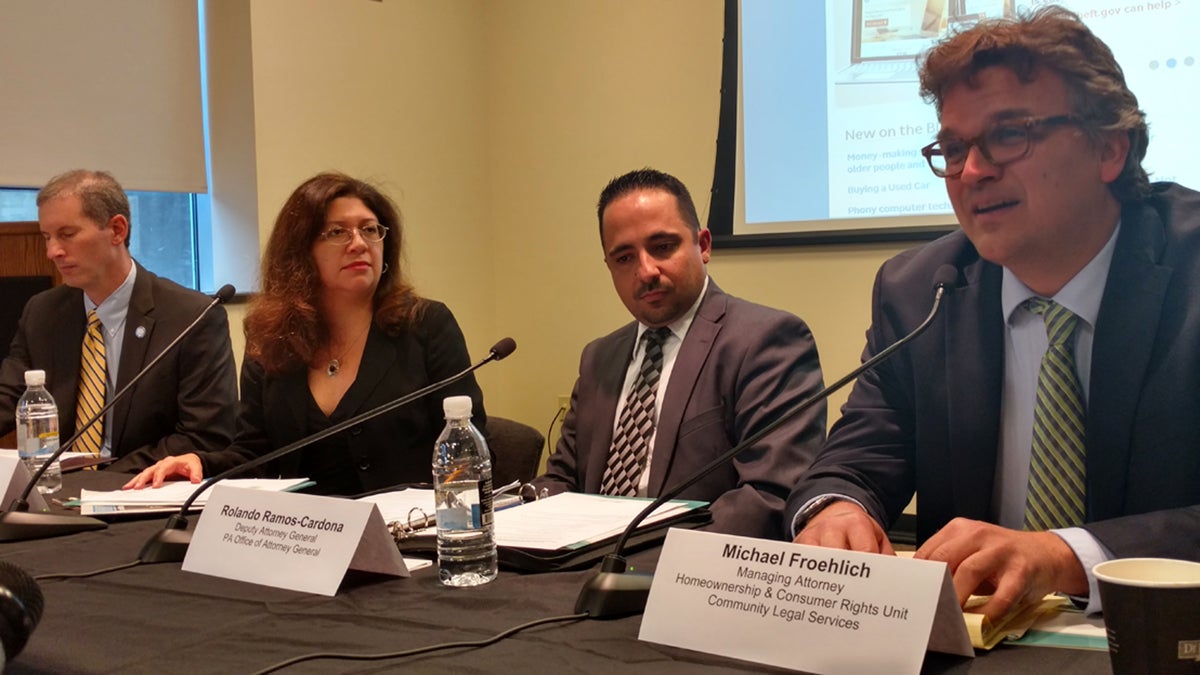Federal Trade Commission urging black and Latino fraud victims to speak up

Michael Froehlich
You’ve probably gotten the email — a Nigerian prince urgently needs your help transferring millions of dollars out of the country. Or maybe you’ve gotten a call from someone claiming to be a tech support specialist who’s detected a virus on your computer.
A recent report from the Federal Trade Commission found that if you’re a person of color, you’re far more likely to fall victim to these consumer scams, but far less likely to report it.
“We’ve long suspected that we have under-reporting, but now our data really confirms that that’s the case,” said Monica Vaca, the FTC’s assistant director of marketing services.
For example, the report submitted to Congress in June said that in the FTC’s latest consumer survey in 2011, African-Americans and Hispanics were about three times more likely than whites to experience debt- and income-related fraud.
However, when the commission looked at specific cases, it found these groups were less likely to file formal complaints.
Three years ago, the FTC brought a case against a compancy called Ideal Financial Solutions, which targeted people who had previously applied for payday loans. The FTC said the company bought their personal information, including Social Security numbers, from data brokers and payday lending websites. Then, Ideal Financial Solutions used that information to take money from those consumers’ bank accounts.
The FTC found residents of majority African-American communities were more than four times as likely to have lost money in that scheme.
“But when we took a look at the complaints we received about the company…we found that communities with predominant or heavy concentrations of African-Americans complained about 45 percent less than heavily white communities,” said Vaca.
“In other words, even though these consumers in areas with high concentrations of African-Americans were victimized at a much higher rate than other communities, they didn’t complain proportionately to their victimization rate.”
Rolando Ramos-Cardona who heads up the Bureau of Consumer Protection at the Pennsylvania Attorney General’s office said minority residents are often targeted by these schemes because they are low-income or, if they are immigrants, do not speak English well.
“They don’t come to our office, whether it’s lack of knowledge that we are here and that we help anybody or just fear that because we’re the government, that we are just not going to do anything,” he said.
Last year, the FTC received 1.2 million fraud complaints of more than $700 million lost. In Pennsylvania, consumers filed about 80,000 complaints for about $19 million paid to alleged scammers.
The commission is working with ethnic media outlets and community organizations in Philadelphia and other cities to raise awareness of these schemes and to encourage more people of color to report them. The FTC is also developing tools to monitor advertisements for fraudulent services in English and Spanish that target these groups.
Michael Froehlich, an attorney with Philadelphia-based Community Legal Services, said the key to stopping fraud is educating consumers about their rights. For example, people should know credit card and loan companies never require payments before providing services.
But sometimes, the fraud can be more difficult to spot.
Two years ago, 84-year-old West Philadelphia resident Dorothy Council signed up with a company called American Credit Shield, which offered to pay off her credit card debt for a monthly payment of $200.
And then, the credit card companies started calling.
“I said, ‘American Credit Shield is supposed to be paying y’all because they’re deducting the money from my account,'” she said. “And they said they weren’t getting anything.”
Council came to Froehlich to find out why and she showed him the 14-page agreement she’d signed with American Credit Shield.
“If you read all 14 pages, you would see in there the money you pay every month is just to have access to their website,” Froehlich said.
“The things people get away with makes me shake my head,” he said.
WHYY is your source for fact-based, in-depth journalism and information. As a nonprofit organization, we rely on financial support from readers like you. Please give today.




